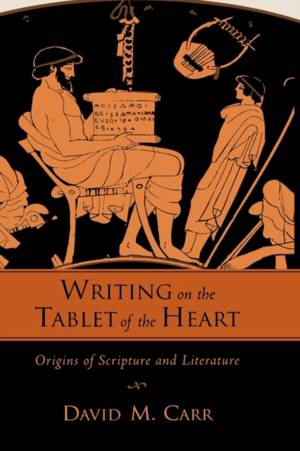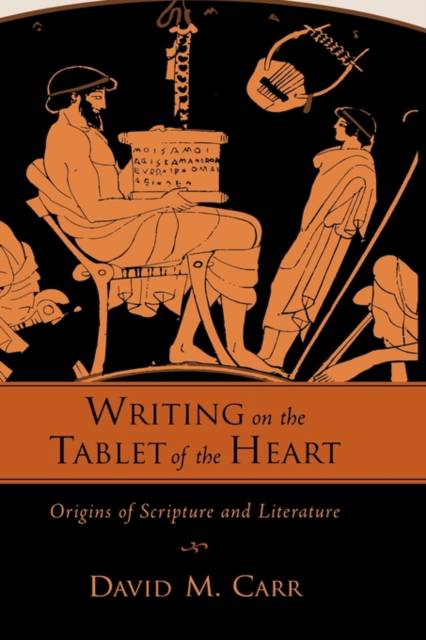
- Retrait gratuit dans votre magasin Club
- 7.000.000 titres dans notre catalogue
- Payer en toute sécurité
- Toujours un magasin près de chez vous
- Retrait gratuit dans votre magasin Club
- 7.000.0000 titres dans notre catalogue
- Payer en toute sécurité
- Toujours un magasin près de chez vous
Writing on the Tablet of the Heart Origins of Scripture and Literature
Origins of Scripture and Literature
David M Carr
Livre broché | Anglais
103,45 €
+ 206 points
Description
This book explores a new model for the production, revision, and reception of Biblical texts as Scripture. Building on recent studies of the oral-written interface in medieval, Greco-Roman and ancient Near Eastern contexts, David Carr argues that in ancient Israel Biblical texts and other texts emerged as a support for an educational process in which written and oral dimensions were integrally intertwined. The point was not incising and reading texts on parchment or papyrus. The point was to enculturate ancient Israelites -- particularly Israelite elites -- by training them to memorize and recite a wide range of traditional literature that was seen as the cultural bedrock of the people: narrative, prophecy, prayer, and wisdom. Generally, mastery was exercised through remarkably exact recall and reproduction of the tradition -- whether through oral performance or through production of written "performances." Crises like exile, however, could prompt the creation of radically new versions of the classic tradition, incorporating verbal recall of ancient tradition with various extensions, recontextualizations and supplements. This educational process took place on a one-to-one basis and focused on the cultivation of an educated elite. A major change took place with the arrival of the Hellenistic empires in the fourth and following centuries. This, says Carr, led to the emergence of a democratized Jewish "school" as well as the marking off of the standard Israelite texts as an "anti-canon" to the Hellenistic canon of educational texts that were used in the Greek schools of the Eastern Mediterranean.
Spécifications
Parties prenantes
- Auteur(s) :
- Editeur:
Contenu
- Nombre de pages :
- 348
- Langue:
- Anglais
Caractéristiques
- EAN:
- 9780195382426
- Date de parution :
- 29-08-08
- Format:
- Livre broché
- Format numérique:
- Trade paperback (VS)
- Dimensions :
- 156 mm x 234 mm
- Poids :
- 485 g

Les avis
Nous publions uniquement les avis qui respectent les conditions requises. Consultez nos conditions pour les avis.






